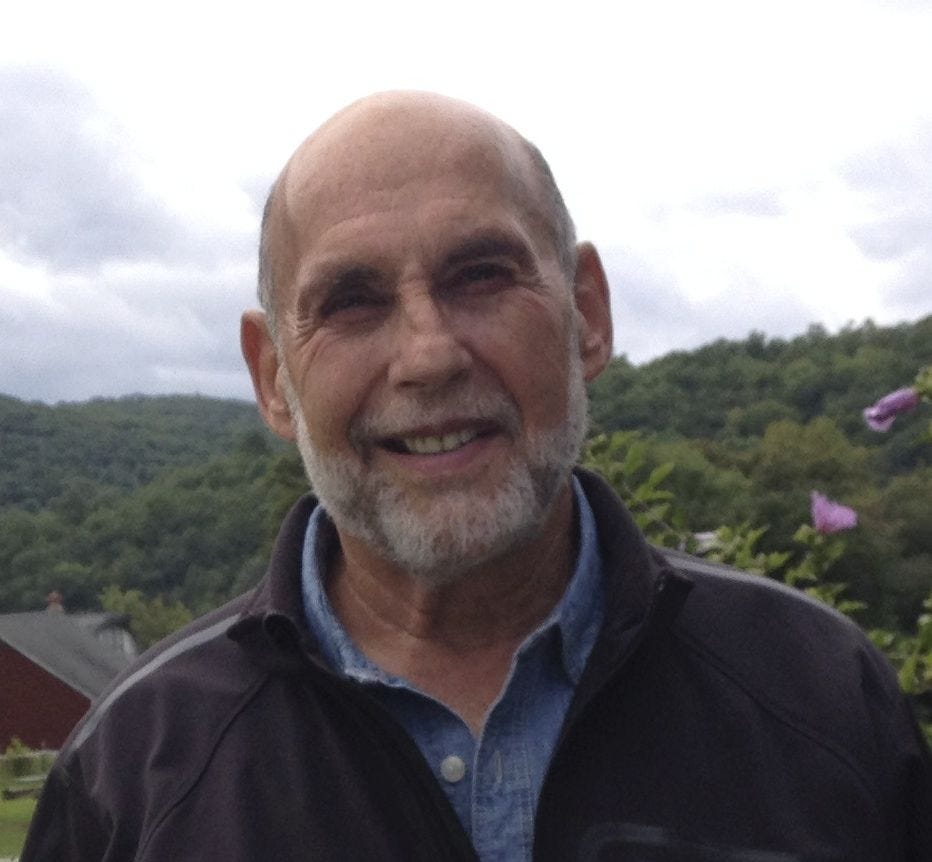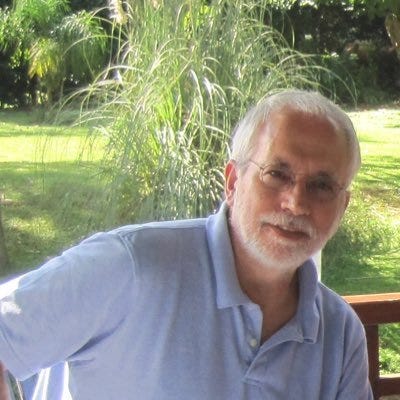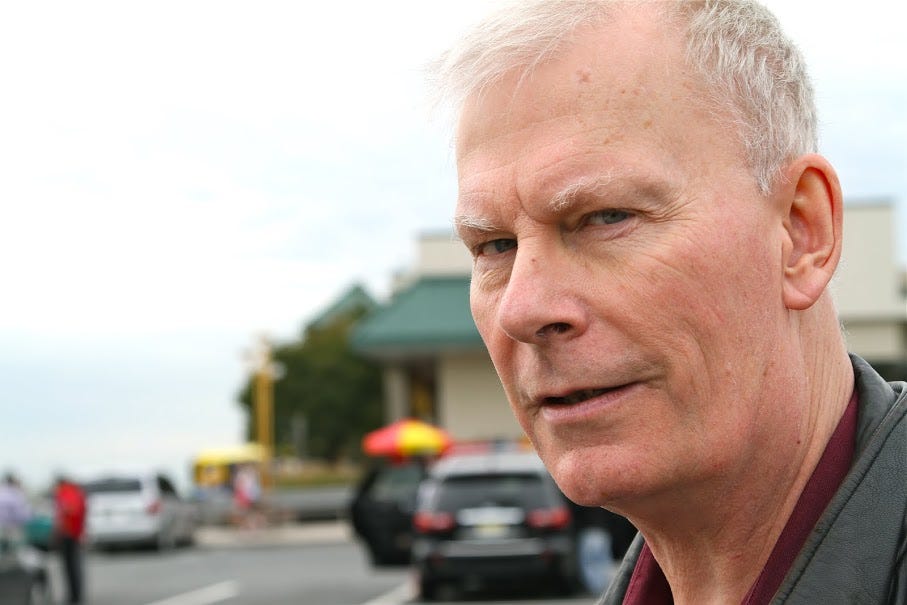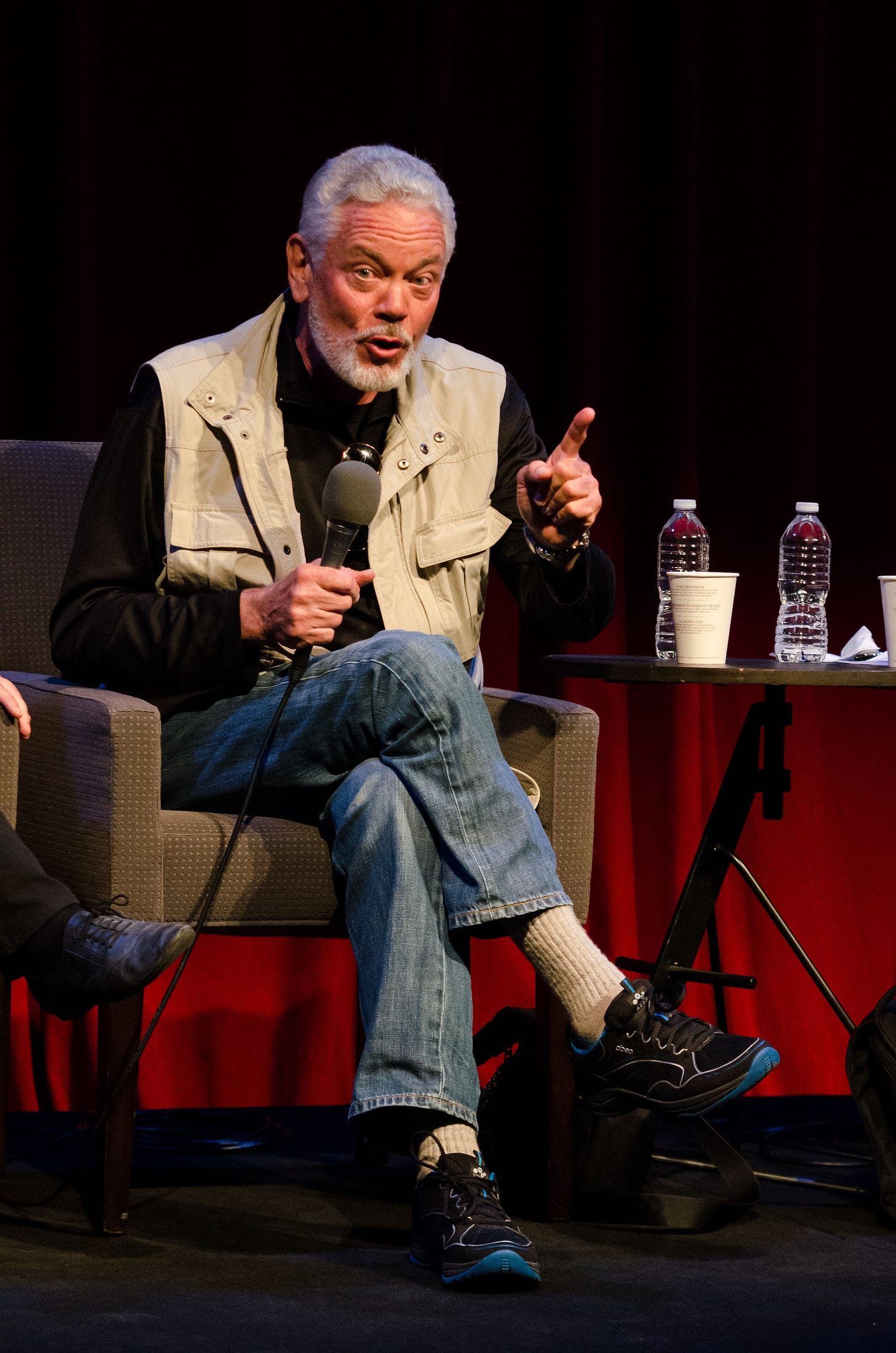JOURNALISM HAS ALWAYS BEEN a team sport. And from the get-go in August 2020 we‘ve been blessed with regular contributions from a top tier of reporting veterans and intelligence experts—people like (in alphabetical order):
Matthew Brazil, a Fellow at the Jamestown Foundation and co-author of the authoritative Chinese Communist Espionage, An Intelligence Primer (Naval Institute Press 2019). Our favorites from Matt this year included Dec. 19’s “How China’s Cell Phone Spies Track Covid Protesters,” on Beijing’s notoriously ubiquitous surveillance cameras and algorithms (designed with help from some of Silicon Valley’s biggest names). The previous month, Brazil provocatively wondered whether the startling protests revealed gaps in Chinese intelligence.
“If, as seems true, the sudden proliferation of chaos from Guangzhou to Zhengzhou to Urumqi is a surprise to the leadership, they may blame the Ministries of State Security and Public Security (MSS and MPS) for not anticipating it—and heads may roll,” Brazil wrote. “It’s also possible that the security agencies saw the protests coming, but were afraid to tell Xi and his cronies the truth: that their Covid strategies were failing.” In October, Matt also gave us “A Bold New Look at China’s Audacious Spies.”
Jonathan Broder. In November, Broder, a reporting veteran of Newsweek, Congressional Quarterly, the Chicago Tribune and A.P., mused on the horrific fallout from a U.S.-China military conflict, writing that each side’s hawks need to be reined in less the “unthinkable” happens. On the eve of Russia’s invasion of Ukraine, Broder wrote presciently on how “China Presents Russia With an Escape Hatch on Sanctions.”
A longtime Middle East hand, Broder wrote in June about how an “Israel-Iran Shadow War [was] on Verge of Exploding Into the Open”—a prospect that may be all the more salient now that a far-right coalition has taken power in Jerusalem. And on the same subject, Broder told readers about the controversial views of Israeli Maj. Gen. Isaac Ben-Israel, a military scientist and weapons specialist who argues that Jerusalem should go public with its nuclear arsenal and engage Tehran in arms talks like the U.S. and Soviet Union did in the depths of the Cold War.
We were also blessed again this year with contributions from John Dinges, a former Washington Post and NPR editor and winner of the Maria Moors Cabot Prize for excellence in Latin American reporting. Dinges, author of two highly regarded investigative books on Chile’s murderous Pinochet years, took a dim view of a blood-and-guts memoir by CIA veteran Enrique Prado.
“Reading Black Ops: The Life of a CIA Shadow Warrior, you can understand why it is so difficult for the CIA to shed its terrible reputation,” he wrote. “The author, Enrique Prado, who goes by Ric, was a 24 year veteran of some of the shadiest of the agency’s operations against Latin American leftists and Middle Eastern Jihadists. The nasty looking switchblade pictured on the cover points us to Prado’s approach to his job, or at least to the tough guy image he paints of himself in this book.”
John Dinges, whose latest book is The Condor Years: How Pinochet and His Allies Brought Terrorism to Three Continents. (photo via Foros-K)
We were also pleased this year to get two pieces from Ayako Doi, a co-founder and editor of The Japan Digest. Just last week, Doi delivered excellent insight on “What Prompted Japan to Adopt Its ‘Earth-Shattering’ Military Buildup Plan?”
“How did the Japanese so quickly and decisively shed their pacifist tendencies, which were so deeply ingrained in their psyche for almost eight decades since the country’s devastating defeat in World War II? There are several factors,” Doi wrote. “The most obvious, of course, is heightened perception of increased threat from China…”
Doi saw it coming—but it shouldn’t have surprised anyone, she wrote in July following the shocking assassination of Prime Minister Shinzo Abe.
“Indeed, the once-radical idea to remilitarize Japan, pushed by Abe’s maternal grandfather Nobusuke Kishi, is not so radical these days. North Korea’s nuclearization and the increasingly clear threat of China’s territorial expansion in recent years have succeeded to convert a once staunchly pacifist Japanese public into proponents of more robust military capability. China, North Korea and now Russia, which grabbed Japan’s northernmost territories in days just before Japan’s surrender in 1945, are helping Tokyo achieve the goals which Kishi and Abe failed to achieve.”
War and Pieces
It’s no surprise that Peter Eisner, a former Washington Post, Newsday and A.P. reporter and editor specializing in foreign affairs, would contribute a piece on Russia’s invasion of Ukraine. Teaming up with me as Putin massed his troops in Belarus last January, we wrote a piece headlined, “US Signaling Putin that Ukraine Will Be Bloody”—which, to the apparent shock of nobody but Putin, it turned out to be.
Eisner, author of a series of nonfiction World War Two books, most recently MacArthur’s Spies, The Soldier, the Singer, and the Spymaster Who Defied the Japanese in World War II, has also become a prolific reviewer of espionage-related books, movies and TV shows for SpyTalk.
One of my personal favorites was his take on Slow Horses, the droll spy thriller on Apple TV, in which “we follow the fortunes of a team of broken down British counterspies and their alcoholic, belching wreck of a boss, played to perfection by Gary Oldman.” The title derives from the shabby confines of the MI5 exiles, Slough House.
As the show’s theme music—from Mick Jagger, no less—fades, “we see our anti-hero snoring on the office couch, [aside] a coffee table strewn with trash, cigarettes, an overflowing ashtray and discarded MI5 envelopes. He’s startled awake by his own loud fart. He could not be more of a failure or more disgusting,” Eisner writes. Oldman is back now for a second season, whose dark comedy gets a jolt when suspected Russian assassins take down one of Oldman’s old colleagues.
Eisner also covered a new, compact biography of Sidney Reilly, “one of the most elusive master spies in modern history,” by the esteemed biographer Benny Morris.
“Reilly, a British agent in Russia in the early days of the Bolshevik revolution, was so elusive that, along with his significant failures and a few successes, he probably will remain a mystery man forever. Obscurity may have been his greatest triumph,” Eisner wrote.
We also benefitted again this year with contributions from our friend James Grady, author of Six Days of the Condor, which, shorn of three days, was turned into the iconic 1970s movie thriller starring Robert Redford and Faye Dunaway. On the 50th anniversary of the Watergate break-in last June, Grady reminisced about working in Washington as a 24-year-old and soaking up the city’s raging paranoia.
Or was it? Years later, ex-FBI agent and “White House plumber” G. Gordon Liddy told Grady how he’d been given “White House orders” to murder Grady’s boss, the muckraking columnist Jack Anderson.
Grady also brought a novelist’s eye to the car-bombing assassination in August of Darya Dugina, a Russian media star and social media “influencer” who happened also to be the29-year-old daughter of Alexander Dugin, a far-right Russian businessman, philosopher, and well-known cheerleader of Vladimir Putin.
“If Ukraine operatives did pull off the car bombing, that means Russia’s ostensibly all-seeing secret police and spy agencies failed to detect, much less prevent a high-tech assassination by a ‘lesser’ global power (Ukraine) on Russian soil,” Grady wrote. “If, on the other had, a Russian group pulled off the bombing, how potentially powerful and violent is the opposition to Putin in Russia?”
Speaking of Russia, Ukraine and conspiracies, we’re always pleased to get something from Olga Lautman, an analyst and researcher focused on the Kremlin, organized crime, intelligence and Eastern Europe and co-host of the Kremlin File podcast. In July, she gave us the inside dope on Ukraine’s security shake-up. “Even before the invasion,” she wrote, “President Volodymyr Zelenskyy had been moving to crush Putin’s agents. And in mid-July, he doubled down on his counter-subversion campaign.” Lots of good, still very relevant, insidery stuff on Ukraine’s murky security organs in Olga’s dispatch.
On conspiracies closer to home, contributing writer Jefferson Morley delivered a fascinating bulletin about the quiet death of Rolando Cubela, 89, the Fidel Castro intimate-turned CIA agent “whose rise and fall once convulsed the governments of Cuba and the United States and generated headlines worldwide.”
Morley, a former Washington Post editor and reporter, also explored the fate of the so-called Snowden archives, the “vast” trove of stolen NSA files that remains locked away in private hands all these years later, “with some stuff so sensitive even journalists with access don’t want to report it.”
Former CIA officer Frank Snepp, meanwhile, turned his well honed analytical skills onto Vladimir Putin’s “Plan B” for Ukraine once his initial strategy of quickly seizing Kyiv utterly failed: establish a puppet state in the Donbas. Of course, that hasn’t gone so well, either, but still…
“As an old Saigon hand, I am reminded of the communist effort in 1973 to set up a supposedly self-governing mini-state along South Vietnam’s western border—a ‘Third Vietnam’—fronted by a ‘Provisional Revolutionary Government’ and designed to give throw-weight to Hanoi’s political demands,” Snepp wrote in a massive two-part piece in mid-April. “If Putin is headed in this direction, or somewhere near it, he has two fully developed roadmaps in his knapsack, two faux ‘peace proposals,’ to guide him.
“They were devised several years ago by spies and surrogates operating on his string and promoted by two prominent recruits from MAGA World, Trump’s one-time campaign Manager Paul Manafort, and his personal lawyer, Michael Cohen (whose wife happens to be Ukrainian).”
Kabul Chaos
In September, Snepp was back with another attention-getting piece arguing that the Biden administration’s tumultuous exit from Kabul was not as bad as the critics say, especially considering the bad hand he was left by Donald Trump and the virtually overnight collapse of the Afghan army and government.
“Despite these appalling conditions, the U.S. and its coalition partners evacuated in those same two weeks 123,000 people—twice as many souls as fled Saigon with some sort of official U.S. help during the entire last month of the Vietnam war.”
Frank Snepp speaking at ‘Beyond Snowden’ in 2013. Photo by Benjamin Dunn/Neon Tommy/Wikimedia Commons.
But the whole story of the chaos in Kabul has yet to be told, a contributor writing under the pen name C. Tatum told us a few months ago in an unsettling exposé we headlined, “CIA, Spec Ops roles in Kabul’s collapse belie official versions.”
House Republicans have vowed to highlight Biden’s handling of Kabul after they take power next week. But, Tatum writes, “If they desire a credible inquiry, House investigators should also consider scrutinizing the role the U.S. intelligence community played in the final outcome of the war—the good, the bad and the ugly—when their efforts cost some lives while saving others.”
Speaking of consequential mishaps, in “Bad Spy, Bad” the authoritative intelligence historian Mark Stout graced our pages once again this year with his review of a new book about Karel Koecher, a “half-hearted Czech spy [who] managed to penetrate the CIA, join a DC swingers club, play his bosses and the FBI and get home a free man.”
“Karel Koecher was a horrible choice to become an intelligence officer for any self-respecting spy service. Born in 1934, he grew up in Czechoslovakia and was always in some kind of minor trouble with the authorities,” Stout wrote in his very entertaining review of author Benjamin Cunningham’s The Liar: How a Double Agent in the CIA Became the Cold War’s Last Honest Man.
And that’s it, folks. Sure hope I didn’t leave any of your favorites out. Of course, we love hearing from you, so keep them megabytes coming.
Best wishes and good luck to all for the new year. God knows we could use it.
—Jeff Stein, Editor
SpyTalk is a reader-supported publication. To receive new posts & support our work, please consider a paid subscription.









